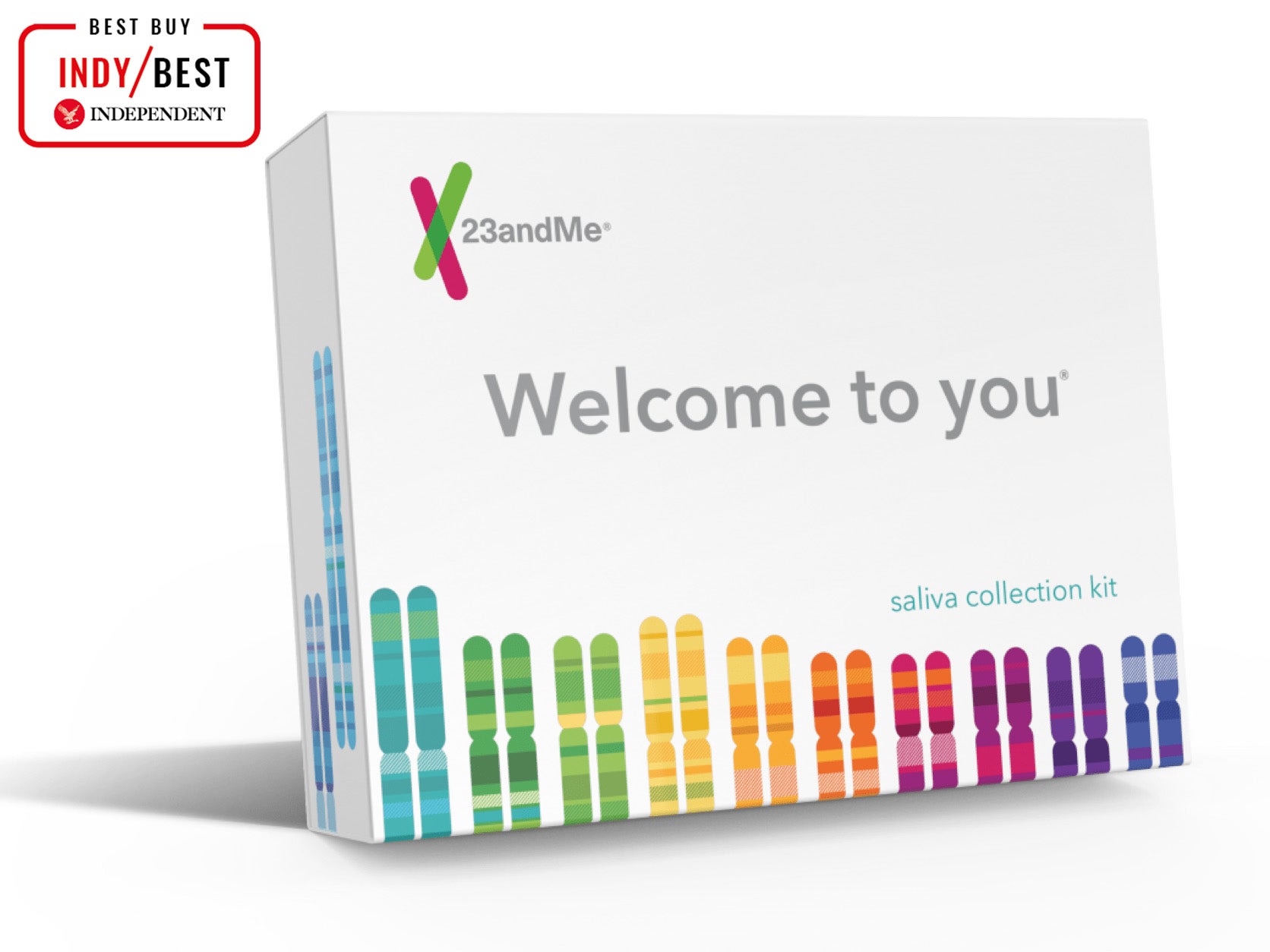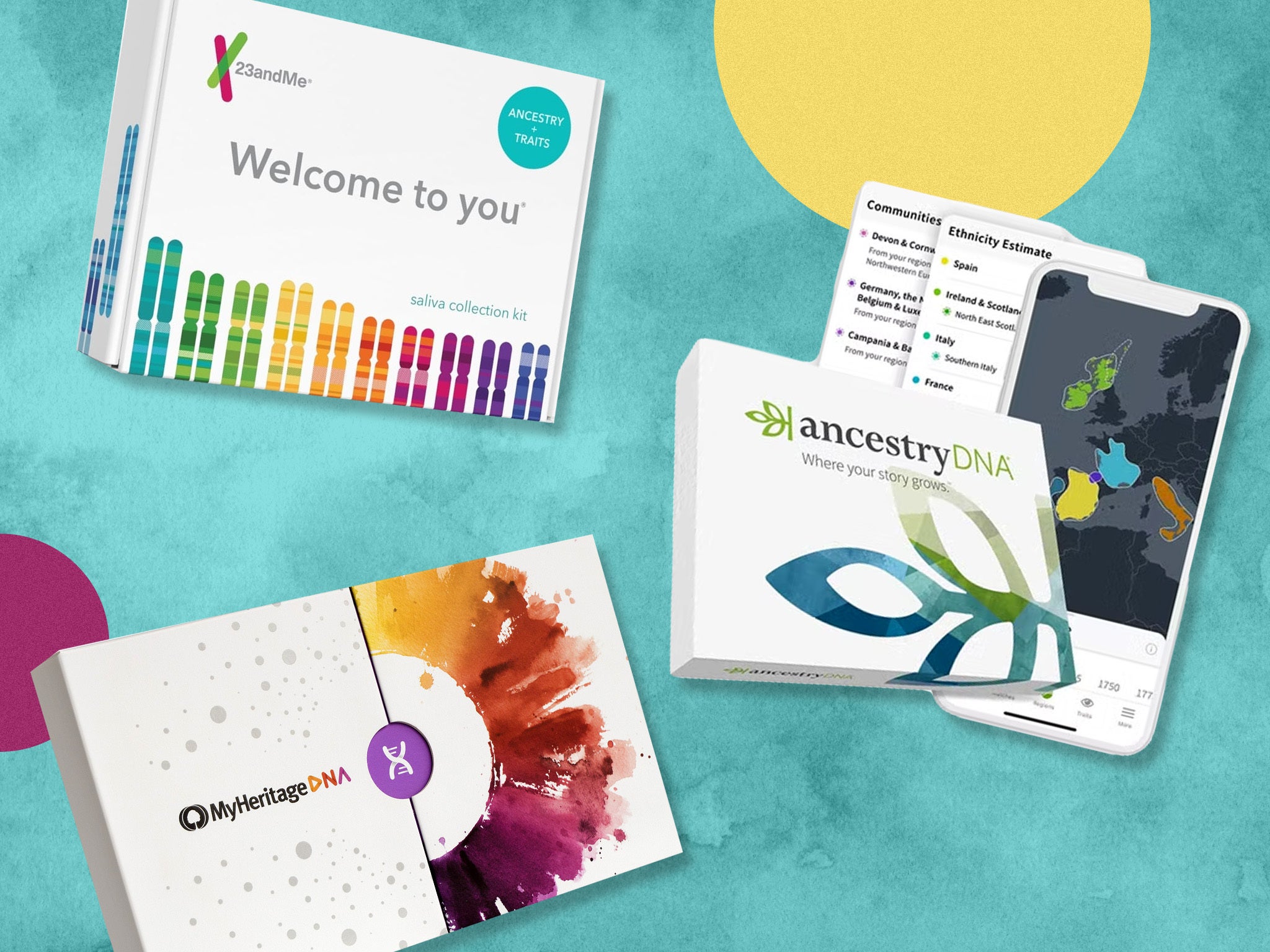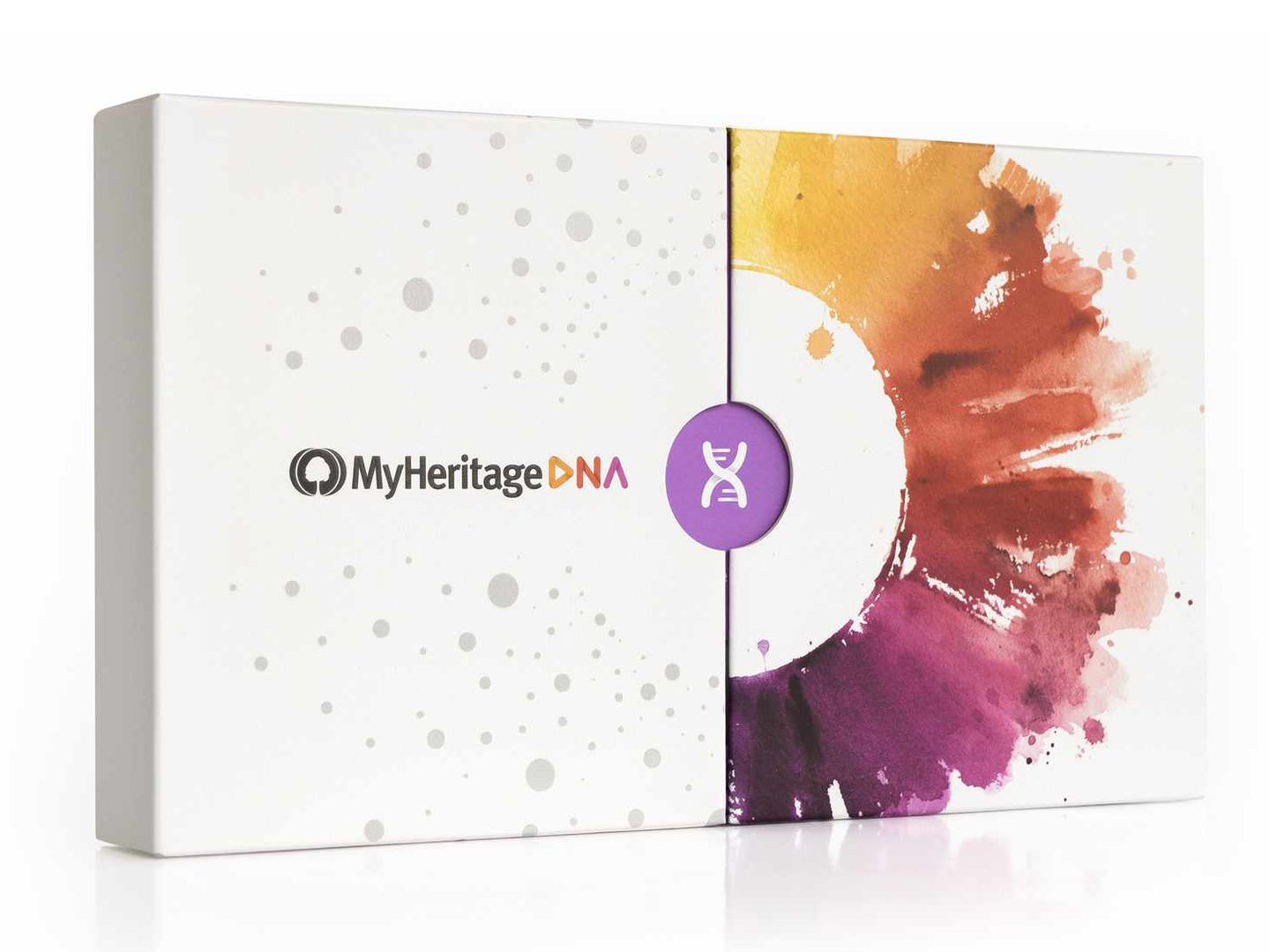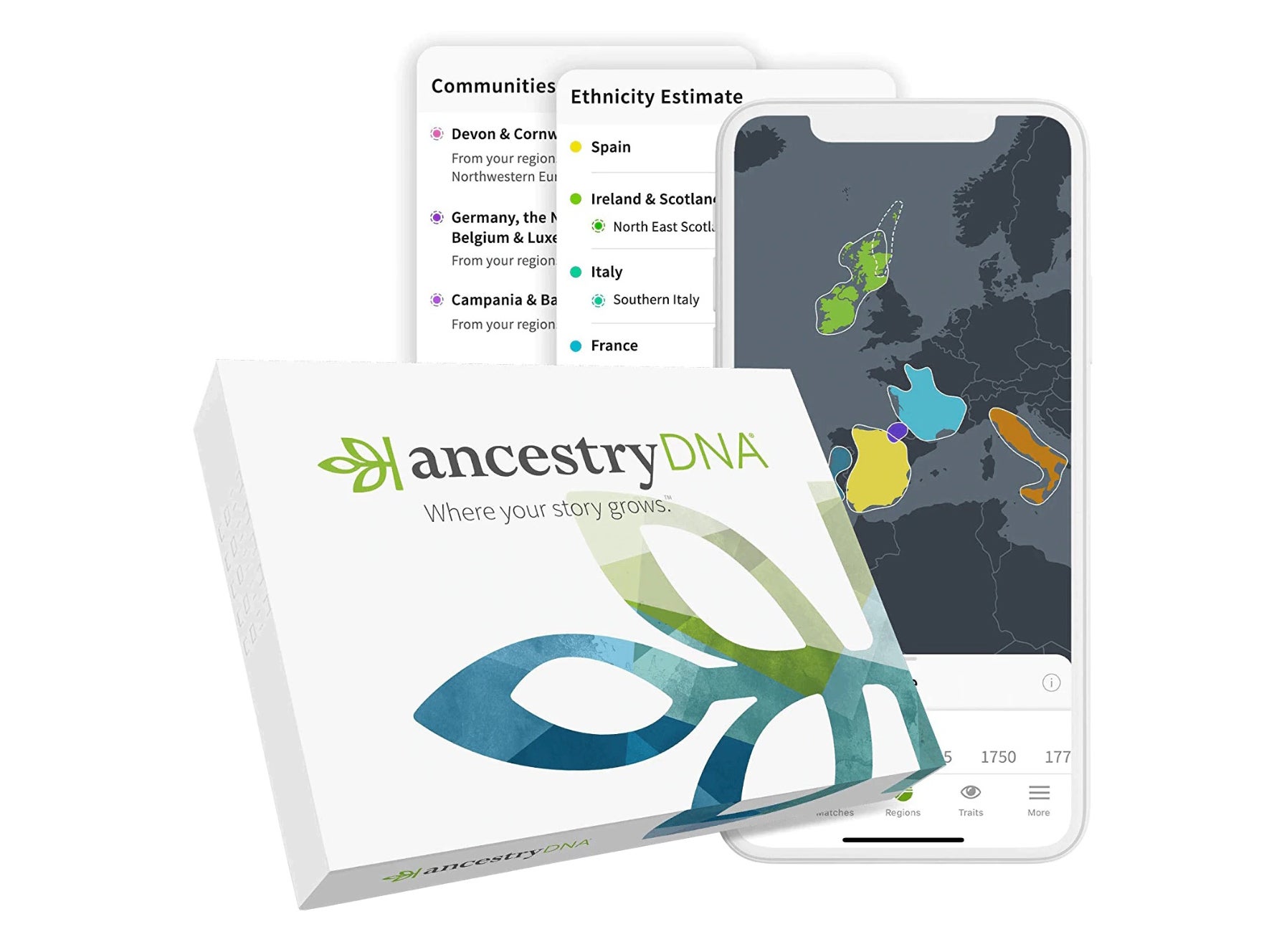
The Independent's journalism is supported by our readers. When you purchase through links on our site, we may earn commission. Why trust us?
Best ancestry DNA tests: Top kits for exploring your family history
Use a DNA kit to fill out the branches on your tree or discover more about your health

Ancestry DNA kits have never been more popular. But there’s such a wide range of services – and associated prices – out there, how do you know which one is right for you?
The actual process of ordering and using one of these kits is fairly straightforward – you fill out a form, place your order, receive a box with instructions to spit or swab, and return your sample to the company in question (and then eagerly await your results).
But while you don’t need a science degree to take a DNA test at home and interpret its findings, there are a few important things to know before you decide which one is best for your needs.
You can find out more about the three main types of test – mtDNa, Y-DNA and autosomal – and how they differ, in the FAQs at the bottom of this piece, along with info on accuracy and privacy.
How we tested
We spent months spitting and swabbing our way through the UK’s most popular kits (hey, we never said it was a glamorous process) to help you select the right option, whether you’re thinking of investing in a test for yourself or as a gift for a friend or family member. We looked at how the results were presented, how easy they were to digest and any other additional features or add-ons that made the test stand out from the rest of the field.
As an aside, turnaround times are typically anywhere from two to six weeks for processing, so be prepared to exercise some patience before you get to dive into the details.
The best DNA tests for 2024 are:
- Best DNA test overall – 23AndMe: £179, Amazon.co.uk
- Best budget DNA test – MyHeritage: £34, Myheritage.com
- Best for building your family tree – Ancestry.co.uk: From £13.99 a month, Ancestry.co.uk
- Best for tracing British or Irish ancestry – Find My Past: £79 (plus £9.95 shipping to UK), Findmypast.co.uk
Subscribe to Independent Premium to bookmark this article
Want to bookmark your favourite articles and stories to read or reference later? Start your Independent Premium subscription today.
23andMe DNA test

- Best: Overall
- Sample method: Saliva tube
- Type of test: Autosomal, mtDNA and Y-DNA for men only
We’re showing our shallow side here, but 23andMe is the best-looking DNA kit in the bunch – both the box it arrives in and the contained paperwork feel very contemporary and slick, and it would make an excellent present. On the test front, the results are impressively in-depth, and equally clean and enjoyable to read through – we were told we have more Neanderthal DNA than 64 per cent of other customers, which apparently means we’re less likely to be afraid of heights, but also have a worse sense of direction, for instance – and your whole report is similarly littered with fun, fascinating insights.
But where 23andMe really shines is on the health analysis front. From the kits we sampled, it would be fair to say that it’s unrivalled in this arena and offers a really impressive amount of detail. It also guides you through responsible tutorials and asks your permission before sharing risks for any conditions, so you can avoid any sensitive information that you might end up finding upsetting, which we really appreciated.
With insights on everything from your predisposition towards diabetes to Parkinson’s or Alzheimer’s, as well as wellness-related results on how much you’re likely to weigh or how well you sleep, it’s staggeringly comprehensive. It can even show how your genetics predict if you’re likely to have freckles, or whether your earlobes are attached.
MyHeritage DNA test

- Best: Budget DNA test
- Sample method: Cheek swab
- Type of test: Autosomal
While this is the cheapest DNA test we tried, it’s worth noting that the cost of shipping isn’t included, although you’ll only need a first-class stamp to send it on its way, which isn’t too much of a hardship. As with Ancestry, MyHeritage doesn’t offer a health analysis, instead focusing its outcomes solely around your ancestry – however, the way it presents your results is one of the most unique. Open your email and you’ll be greeted by a spinning 3D globe with highlighted regions showcasing your family history. It’s set to lively backing music and really does feel like a big, exciting reveal.
Once you’ve taken in the show, you can explore the information about each area and there are some useful details about how your ancestors would have lived and migrated, as well as the chance to review your DNA matches, although it provided us with less of these than other sites. You can build a family tree with MyHeritage too, supported by census and voter lists and various other public records. If you’re looking for a basic DNA package that you can build on in your own time, this is one to consider.
Ancestry DNA test

- Best: Building your family tree
- Sample method: Saliva tube
- Type of test: Autosomal
Possibly the most well-known DNA testing service in the UK, Ancestry offers one autosomal test. It claims to have the largest consumer base, with more than 20 million participants, giving it the potential for very rich data; it connected our DNA to five world regions, which are presented on a map that allows you to click to learn more about various populations you’re linked to. You also get links to genetic communities and DNA matches, and Ancestry even shows you where they live if they’ve shared their location.
It doesn’t get unnecessarily complex or bogged down with jargon – we found the information breakdown clearly presented and easy to digest – and in our opinion, Ancestry is the best destination if you’re keen to build your family tree as well as analyse your DNA history. However, it’s worth noting that the free version of this service is fairly limited, and you’ll need to pay an additional monthly subscription charge (costing anywhere from £13.99 to £29.99, depending on the package you choose) to link up the records it finds and really get your tree growing interesting branches.
DNA test FAQs
The different types of DNA test
There are three main types of DNA test:
- mtDNA, or mitochondrial DNA testing, provides information about your maternal ancestry line. Both male and female children inherit mitochondrial DNA, but only females can pass it on to their own children. However, since everyone has mitochondria, people of all genders can take mtDNA tests.
- Y-DNA testing provides information about your paternal ancestry line. Because it tests the Y chromosome, which women don’t have, it’s only available to men, although women can still derive helpful details from the Y-DNA tests of their fathers, uncles or brothers, for instance.
- Autosomal chromosomes contain segments of DNA you share with everyone you’re related to, so people of all genders can take these tests, and they are the most common types of test available on the home DNA kit market.
How accurate are home DNA tests?
While they can provide lots of fascinating data and reliable insights, it’s important not to take your home DNA test results as a completely precise representation of your past. The data sets used in these assessments (which involve comparing your results to reference populations of thousands of other people to determine your information) are still growing and evolving – you might even get an update to your results months after you’ve taken the original test, as more and more people continue to participate.
As they’re based on estimates, we suggest treating home DNA tests as a fun investigation to get to know your family history a little better, rather than a to-the-letter representation of everything that’s ever happened in your gene pool before you arrived.
DNA tests and privacy
Any DNA test you order will ask you to agree to a number of terms and conditions about how your sample and subsequent information will be used, and many give you the choice of opting into or out of certain data sharing. Read this carefully to ensure you’re comfortable with the way your sample will be held and compared – we sent our samples to all of the companies in this round-up and didn’t feel concerned, but your personal boundaries may differ.
Consider what you might discover
Ancestry DNA tests – especially those which offer health screenings as part of their package – can reveal information that could prove distressing, or that you wish you hadn’t found out after all. Of course, a result that indicates an increased risk of a particular illness doesn’t automatically mean you’ll get it, but you may find it playing on your mind.
Equally, you may uncover secrets in your family’s past that they’d rather you didn’t know. We don’t say this to discourage you from taking a test, but rather to ensure that you fully understand what’s involved and how it could affect you.
The verdict: DNA tests
If you’re after a bells-and-whistles DNA test with a full health breakdown too, we couldn’t recommend 23andMe more – it’s really easy to use and understand, and we loved the increasingly quirky factoids it presented us with as we explored. Or, if you’re hoping your DNA test will connect you with your past in a way that allows you to build a comprehensive family tree, we’d suggest turning to Ancestry.
Looking for more gift ideas? Read our round-up of the best karaoke gifts for children and adults, from little luxuries to grand gestures
Voucher Codes










